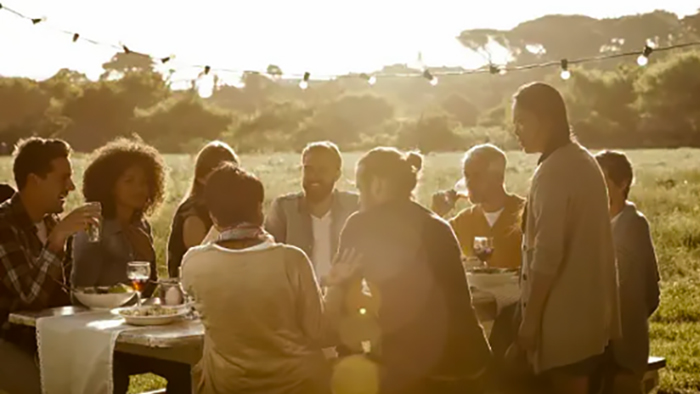
Christianity teaches us that our world is holy and that everything is a matter for the sacrament. Fr. Ron Rolheiser writes that in this view, the universe manifests God’s glory, and humanity is made in God’s image. Our bodies are temples of the Holy Spirit, our food is sacramental, and in our work and sexual embrace, we are co-creators with God. When we watch the news at night, our world doesn’t look like the glory of God; what we do with our bodies at times makes us wonder whether these really are temples of the Holy Spirit, the heartless and thankless way that we consume food and drink leaves little impression of sacramentality, and the symbols and language with which we surround our work and sex speak precious little of co-creation with God. We have lost the sense that the world is holy and that our eating, working, and making love are sacramental, and we’ve lost it because we no longer have the right kind of prayer and ritual in our lives. We no longer connect ourselves, our world, our eating, and our making love to their sacred origins. In not making this connection, our prayer and ritual fall short. Among the Osage Indians, there is a custom that when a child is born before it is allowed to drink from its mother’s breast, a holy person is summoned, and someone “who has talked to the gods” is brought into the room. This person recites to the newborn infant the story of the creation of the world and of terrestrial animals. Not until this has been done is the baby given the mother’s breast. An older generation, that of my parents, had their own pious way of doing this ritual. They blessed their fields and workbenches and bedrooms, they prayed grace before and after every meal, and some of them went to finalize their engagement for marriage in a church. That was their way of telling the story of the sacred origins of water before drinking it. By and large, we have rejected the mythological way of the Osage Indians and the pious way of my parent’s generation. We live, eat, work, and make love under a lower symbolic hedge. Most of our eating isn’t sacramental because we don’t connect the food we eat to its sacred origins—and, for the most part, we don’t really pray before and after meals. We must find a way to connect our eating, drinking, working, and making love to their sacred origins.
